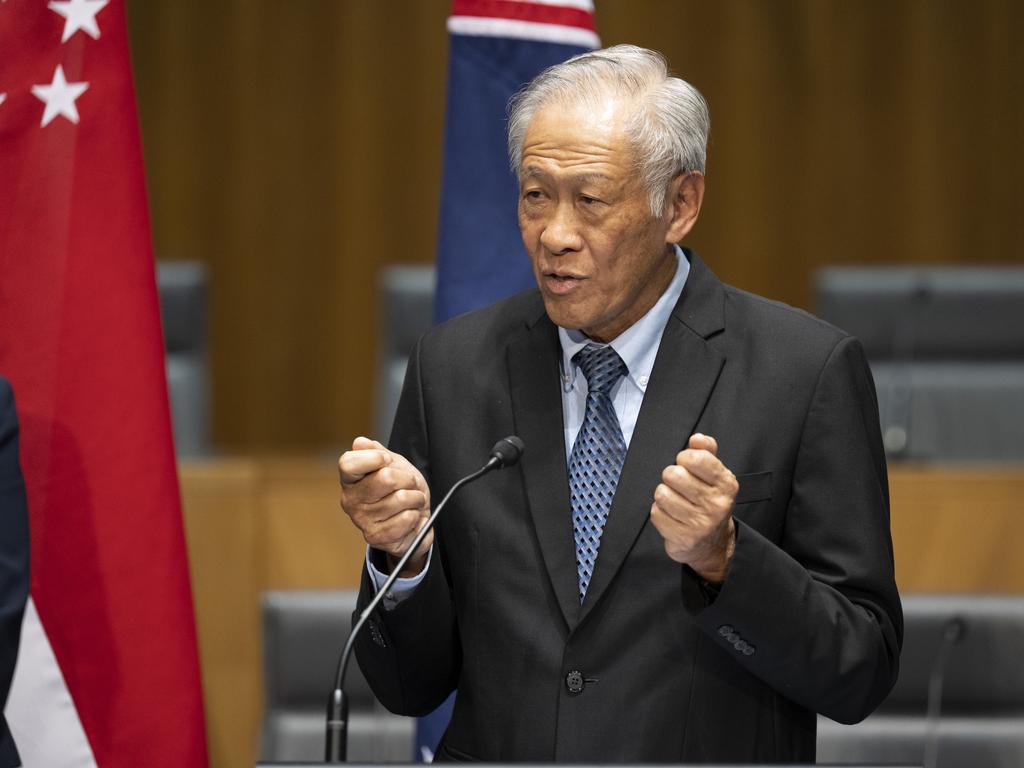Cook Islands’ China deal a ‘nightmare scenario’ for Australia
China’s latest Pacific deal is a huge embarrassment for NZ and a potential security problem for Australia.

New Zealand is facing its own ‘Solomon Islands moment’ over a shock deal between China and the Cook Islands that clears the way for Beijing to build critical infrastructure and a persistent presence in the tiny pacific nation, security analysts have warned.
Tensions between the two allies have ratcheted up since Wednesday when Cook Islands’ Prime Minister Mark Brown survived a no-confidence motion in parliament over a series of strategic agreements signed this month in Beijing that have sparked protests in Rarotonga, and warnings of a potential security “nightmare” for Australia.
The New Zealand government has said it was blindsided by the deal, and dispatched foreign minister Winston Peters to Beijing this week, while Mr Brown accused Wellington of engineering Wednesday’s no-confidence motion he defeated 14 votes to nine.
“The influence of New Zealand in this motion should be of concern to all Cook Islanders who value their identity and our commitment to our country,” he said.

The five-year agreement with China includes co-operation on seabed mining, ship building, agriculture, tourism and maritime infrastructure; a potential boon for the Cook Islands but also for Beijing by providing the pretext for a persistent presence there and a possible resupply and refuel stop for Chinese vessels.
The deal also opens the door for China to potentially build dual civilian and military-purpose port infrastructure in the Cook Islands, as it has on disputed islands and shoals in the South China Sea.
Massey University security studies associate professor Anna Powles said such infrastructure could support dozens of extra Chinese coastguard vessels registered in the Pacific in May 2024 and would likely result in an “increased presence in our immediate region of Chinese coastguard vessels”.
China’s latest Pacific deal is one of three quick, successive blows for the NZ government, alongside a Chinese task group’s prolonged presence in the Tasman Sea and the recent, high-profile snub of Foreign Minister Peters by the government of fellow Pacific island nation Kiribati.
The combination of events had “turbocharged discussions over New Zealand’s defence capability and relationships with key Pacific partners”, Professor Massey said.
“This is a moment for New Zealand to really reflect on whether or not its Pacific re-set back in 2018 has been effective foreign policy.”
Wellington has accused Mr Brown of violating the 2001 Free Association agreement between the two nations that entitles Cook Islanders to NZ citizenship in exchange for consulting with NZ on issues of defence and security.
Australia has been signing similar – if more explicit – agreements with Tuvalu, Nauru and now Papua New Guinea, that provide benefits such as pathways to Australian citizenship in exchange for written guarantees that Canberra will be the security provider of choice.
Lowy Institute Pacific Islands’ program director Mihai Sora told the Weekend Australian Beijing’s “strategic and political win” with the Cook Islands was akin to New Zealand’s own Solomon Islands’ moment – a reference to the shock 2022 security and policing agreement between Beijing and Honiara that blindsided Australia and gave China its first serious foothold in the Pacific.
“China wants political relationships and physical infrastructure in place to support a persistent presence in the region,” Mr Sora said of the deals which were signed around the time China began live fire exercises in the Tasman Sea.
“If we start to see a more consistent and visible Chinese presence in the region then the implications for Australia’s defence force are it will be tied up monitoring that presence.
“It would be like the last two weeks for the ADF – in response to the three Chinese warships in the Tasman Sea – over and over again which would put enormous strain on Australia’s defence resources.”
That would be a “nightmare scenario for Australia – and New Zealand”, says Charles Edel, the inaugural Australia chair for the Washington-based Centre for Strategic and International Studies.
“This is why there was such bipartisan Australian condemnation when it looked like Beijing was about to establish a dual use facility in Vanuatu in 2018.
“And, it was why there was such disquiet of the Solomon Islands’ secret deal with China in 2022.
“There’s every possibility that just as the Solomon Islands turbocharged discussion in Australia about its role in the Pacific, and the necessary resources it would have to bring to bear in a more strategically contested region, the Cook Islands deal might well do the same to domestic debate in New Zealand.”







To join the conversation, please log in. Don't have an account? Register
Join the conversation, you are commenting as Logout